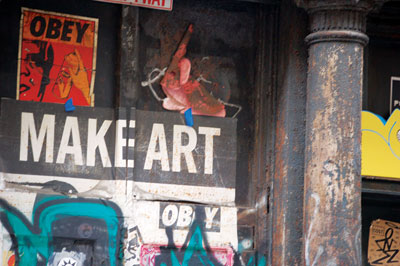All Nonfiction
- Bullying
- Books
- Academic
- Author Interviews
- Celebrity interviews
- College Articles
- College Essays
- Educator of the Year
- Heroes
- Interviews
- Memoir
- Personal Experience
- Sports
- Travel & Culture
All Opinions
- Bullying
- Current Events / Politics
- Discrimination
- Drugs / Alcohol / Smoking
- Entertainment / Celebrities
- Environment
- Love / Relationships
- Movies / Music / TV
- Pop Culture / Trends
- School / College
- Social Issues / Civics
- Spirituality / Religion
- Sports / Hobbies
All Hot Topics
- Bullying
- Community Service
- Environment
- Health
- Letters to the Editor
- Pride & Prejudice
- What Matters
- Back
Summer Guide
- Program Links
- Program Reviews
- Back
College Guide
- College Links
- College Reviews
- College Essays
- College Articles
- Back
Artistic Political Correctness MAG
I came to the topic of cultural appropriation after I found myself writing about something I swore I wouldn’t: race. And I was already committed to writing about superheroes and superheroines in order to outdo the Avengers that ruined my life in 2012. I wasn’t going to be one of those writers who wrote short, angry essays about how society mistreated her, and yet the more short, angry essays I wrote, I wondered, Why race? Why do I feel this very personal conflict?
Cultural appropriation is a barbed term now. It means taking a cultural aspect out of context and using it inconsiderately. At one time it was considered “cultural sharing” and a product of our global society. The first argument against appropriation is usually ownership, or club membership: “You’re not part of this culture, so you don’t have the right to talk about these things.”
I think this is where the conversation on appropriation can get pretty scary. There’s always the chance for someone to say, “Well, you haven’t lived through life as a ______, or ______, or ______.”
Lots of times they’re right. Race is just one of the divisions we draw in society, and many of us will never transcend the gender, orientation, or religion we were born into. For most of our lives, we live very specific identities.
But what about art? Sometimes art isn’t realistic. Most of it is fiction, where we read books, see paintings, and hear music based on nothing at all, or whose inspiration is no longer recognizable.
That’s why art is so universal. Our experiences as people are remarkably similar – they just come in different packaging.
We experience many of the same emotions, struggles, and relationships as other people, and that’s what art is about. It’s about the deep stuff. Art is about hopes, feelings, dreams. It’s not always about writing for the sake of being right (though that is a profession).
Dan Blum, a novelist, described writing an account of someone sympathetic to Germans who fought for the Nazis. As a Jewish man, he could only imagine the backlash he would receive from his community. Still, he argued, a novel is an act of empathy. If that empathy extends to another culture, shouldn’t this be appreciated, even if the result is imperfect?
It’s true: some people don’t think that far. There are harmful effects to appropriation. For profit, for fun. We perpetuate a self-excusing image in society obsessed with image, where actors like Jared Leto and Eddie Redmayne sweep up the few roles even about transgender women, and there’s the dreaded blackface in theater.
I was reading about the live-action remake of “Mulan” in the works. I wasn’t too excited for it, since I don’t sing or fight particularly well. The script, I read, originally had a white male lead as the love interest.
Don’t get me wrong, I love mixed-race couples. But I don’t think you have to be Asian to think that might be the wrong story, wrong time period ….
But if we pick and choose who can do what, in the end, I don’t think we’re helping ourselves. Exclusivity is a double-edged sword. We’re not only limiting the mainstream, but minorities as well. Lin-Manuel Miranda, creator of the musical “Hamilton,” which my friends can recite backwards, said as a Puerto Rican American writing about the non-Puerto Rican founding fathers, “If there isn’t diversity, I don’t get to go.”
And if authors are restricted to writing about experiences that are strictly their own – if I only ever write about moody, Chinese-American teenagers obsessed with Taylor Swift – like Lionel Shriver said, “All that’s left is memoir.”
That’s why I sincerely believe the arts must become a welcome place again for, yes, cultural appropriation, if done with research and consideration. It is one of the hallmarks of an urban arts culture, and yields some of our most interesting works. We can’t afford to lose that, and the tolerance, the connections it fosters in society.
Where do we start? We start with being a bit more open-minded, encouraging research, and having the patience for ideas to grow.
Sometimes I wonder if this is just me, loudly justifying over and over again my right to write as a 26-year-old Jewish woman who is trying to, well, save the world.
But I sincerely hope my being a woman, a person of color, doesn’t have to conflict with my wish to become a really cool writer. Or that my writing can only ever revolve around my being a woman and a person of color.
Art has so many possibilities.

Similar Articles
JOIN THE DISCUSSION
This article has 0 comments.

What does "THH" stand for? Good question! It's THE HOLY HITCHHIKE... The name is Ala Nova, and you have entered the domain of my discussion, thought, and paraphernalia. Enjoy, and let loose your commentary and suggestions below. A new column every Friday!